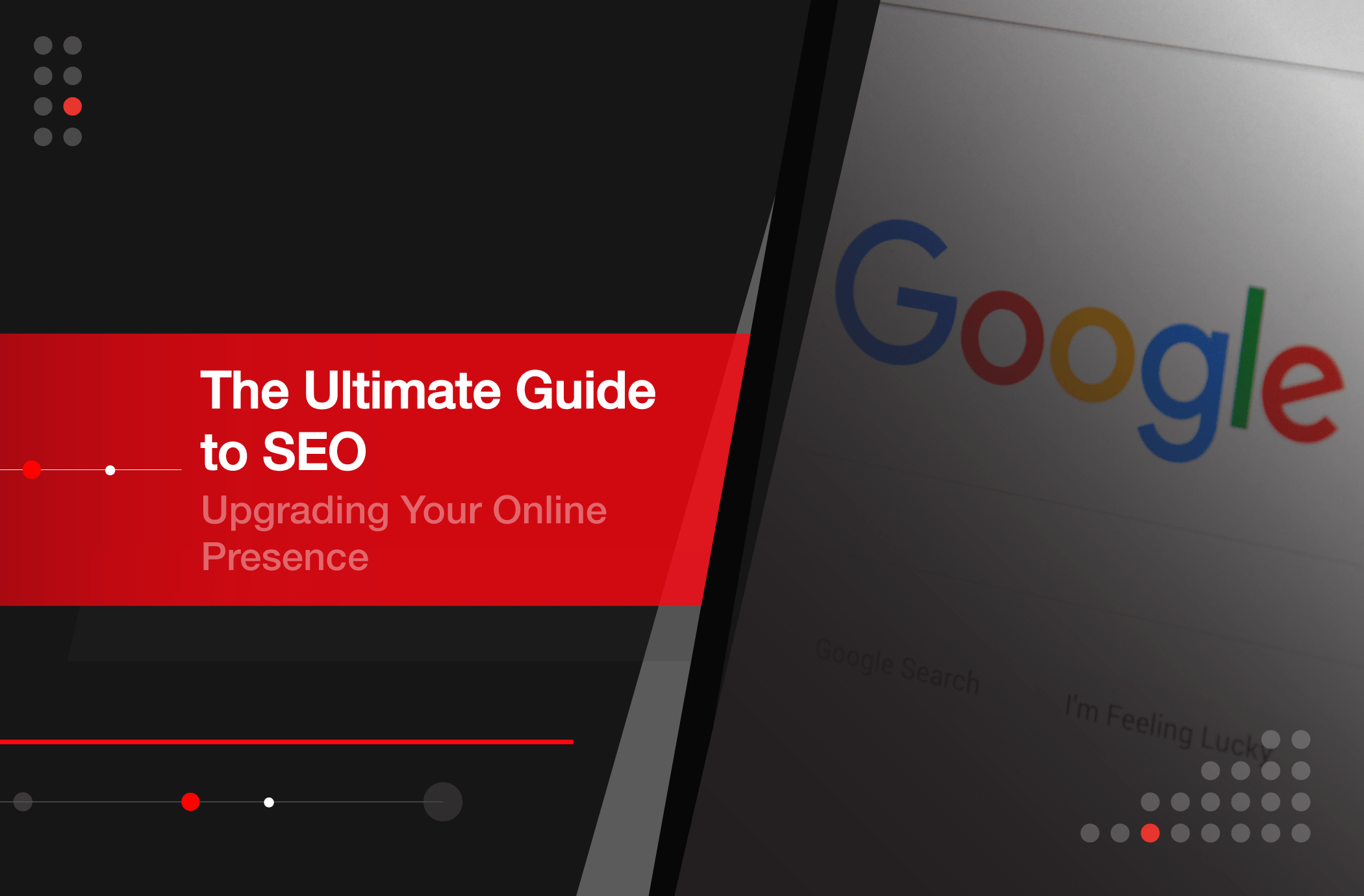
The Ultimate Guide to SEO: Upgrading Your Online Presence
As a search-first marketing agency, we at Diony know that if you’re looking to improve your website’s visibility online, Search Engine Optimisation (SEO) is the key. It can seem complicated, especially if you’re just getting started, but once you have the basics in place, it can be more straightforward. SEO is all about making sure your website is easy to find and ranks higher on search engines like Google. This is important because the higher your site appears in search results, the more likely it is to attract visitors who are interested in what you offer.
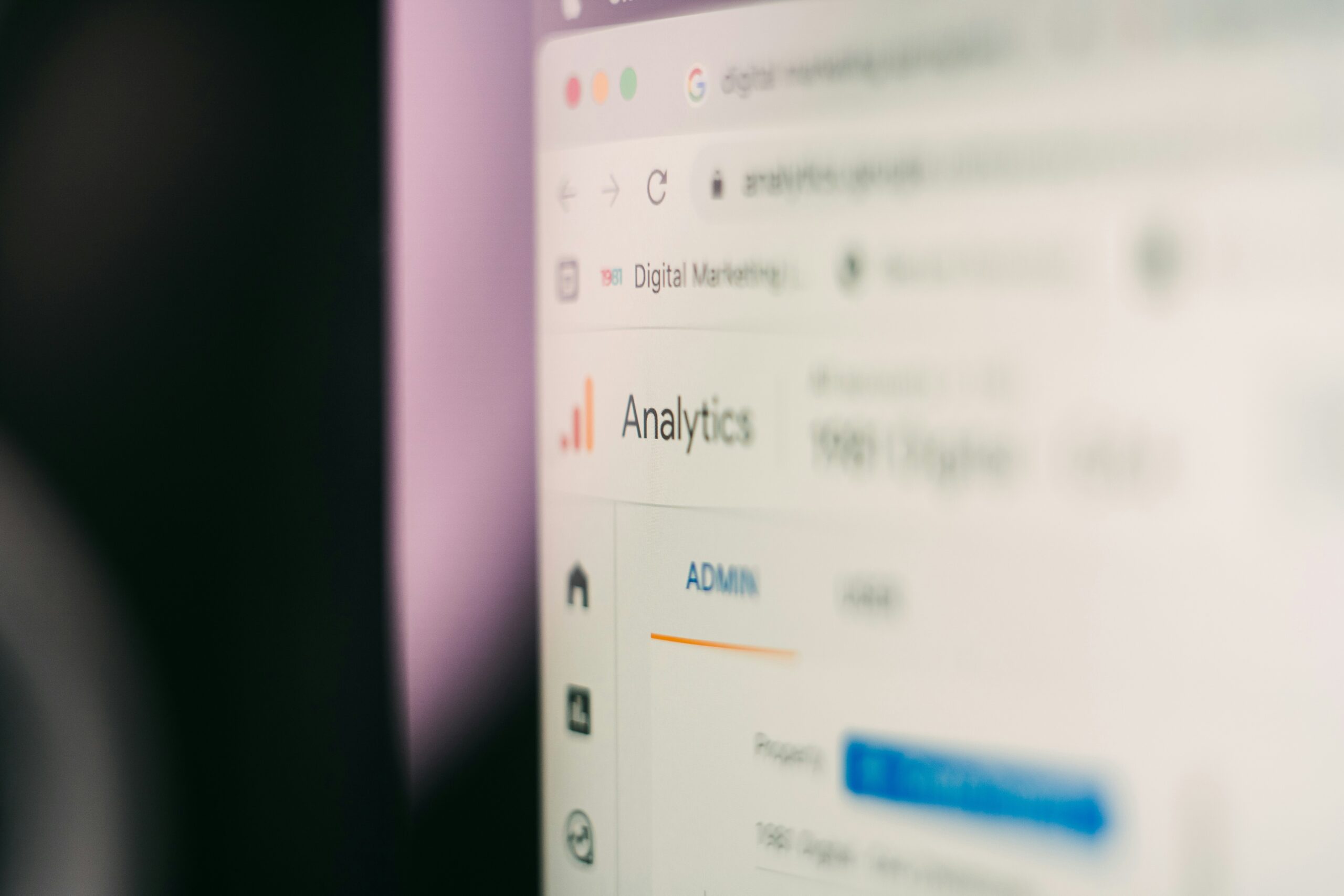
That being said, let’s take a closer look at SEO and how you can use it to your advantage, whether you’re just starting or someone looking to improve your existing strategy.
What SEO Is & Why It Matters
SEO stands for Search Engine Optimisation. It is the process of improving your website so that it appears higher on search engines when people are looking for products or services like yours. Think of it as making your site more attractive to search engines like Google. The goal is to increase your website’s visibility and bring in more traffic, ideally from users who are already searching for what you offer.
When your website is optimised for search engines, it is easier for potential customers to find you. SEO covers a wide range of tactics, from using the right keywords in your content to making sure your website is both fast and mobile-friendly. The end goal is to help search engines understand that your website is relevant, trustworthy, and useful to users.
Why does this matter? Well, the more visible you are, the more chances you have to connect with potential customers. Google processes over 3.5 billion searches per day, and around 75% of people don’t go past the first page of search results. If your website is hidden beneath the competition, you’re missing out on potential customers every day. Being number one pays off, with the top 3 organic search results capturing more than two-thirds (68.7%) of all clicks on the Google Search page.
Understanding Keywords
A big part of SEO is knowing what keywords people are using when they search for information, products, or services. Keywords are the words or phrases that users type into a search engine when they are looking for something. For example, if you own a coffee shop in Hull, people might search for “best coffee in Hull” or “Hull artisan coffee.”
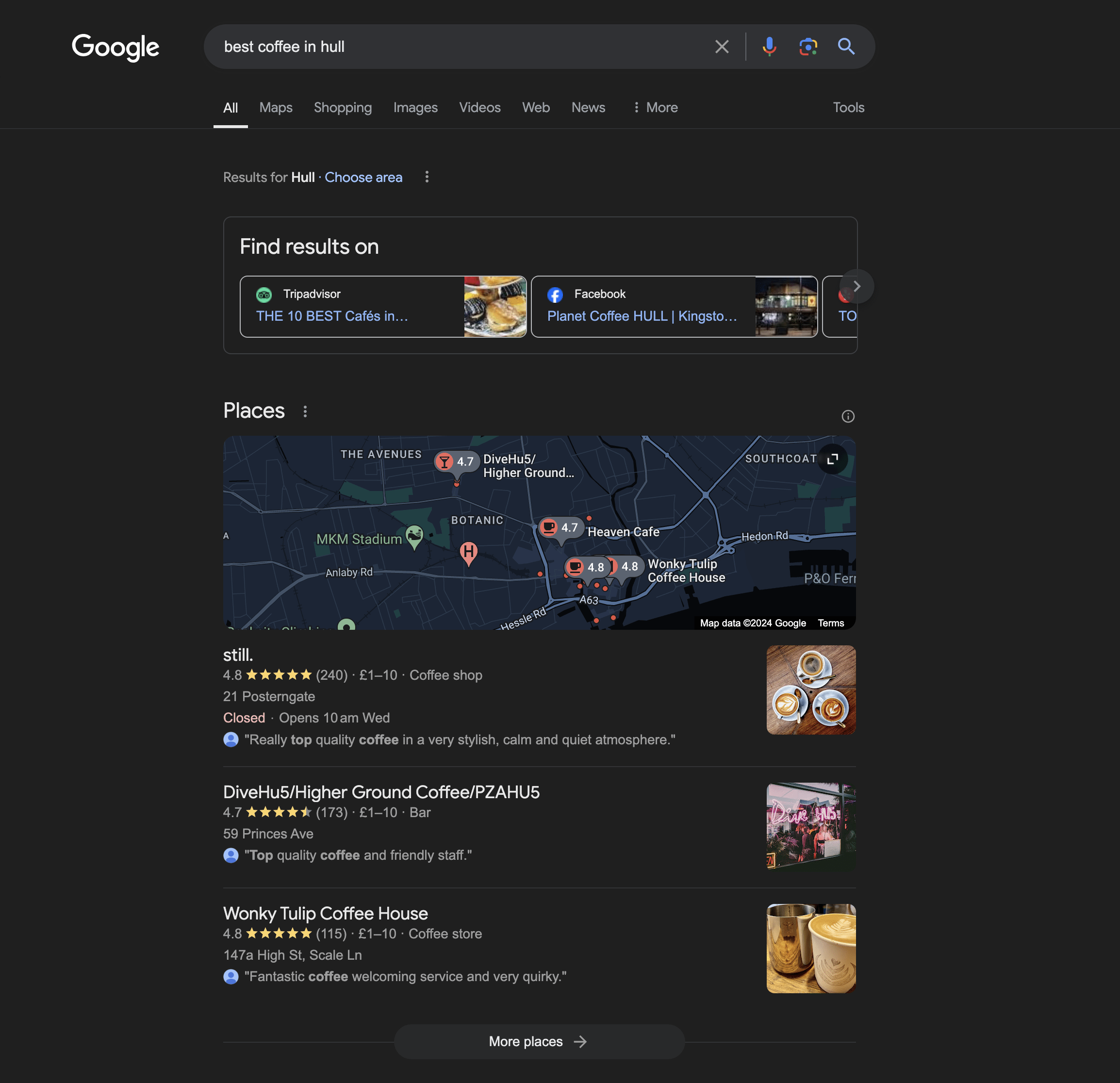
The goal is to identify which keywords are most relevant to your business and have a respectable search volume and then use them strategically throughout your website. This helps search engines understand what your site is about and match it with users who are looking for the same things.
To find the best keywords, tools like Google Keyword Planner, Ahrefs, and SEMrush can be useful. These tools can show you how often specific terms are searched for and how competitive they are. Ideally, you want to target keywords that are highly relevant to your business, but not so competitive that it’s impossible to rank for them.
Once you’ve identified the right keywords, the next step is to use them naturally throughout your site. This includes not just in the body of your content, but also in places like titles, meta descriptions, and image alt tags. But it’s important not to overdo it. Keyword stuffing, or using a keyword too many times in a short space, can actually have a negative impact on your rankings.
What On-Page SEO Is & How to Get It Right
On-page SEO refers to the things you can control directly on your website to improve your search engine rankings. This includes things like your content, headers, meta descriptions, and internal links. Optimising these elements makes it easier for search engines to understand what each page of your website is about and determine how relevant it is to users’ search queries.
Creating Content That Delivers Value
Search engines like Google prefer content that is helpful and relevant to users. This is why content optimisation is essential. It’s not enough to just cram keywords into your content and hope for the best. You need to create high-quality content that provides proper value to your readers. This content should be written naturally but with SEO in mind. The use of AI should be avoided as, more recently, Google has been cracking down on AI-written content in favour of high-quality human content. Remember, content should be written by humans, for humans.

The more useful and relevant your content is, the more likely it is to rank well. This means taking the time to understand what your audience is looking for. What questions do they have? What problems are they trying to solve? Once you know the answers to these questions, you can create content that speaks directly to their needs.
Content should be easy to read and well-organised. Breaking it into small sections with clear headings makes it easier for both users and search engines to understand. You should also aim to keep your content up to date. Outdated content can be negative to your rankings, so regular updates are important.
Optimising Titles & Meta Descriptions
The title tag is the headline that appears in search results and the browser tab, whilst the meta description is the short summary underneath the title in search results. Both of these elements play a big role in SEO. A good title tag should be clear, include relevant keywords, and encourage users to click through to your site. The meta description should offer a brief but compelling reason for users to visit your page.
Why Internal Linking is Important
Internal linking is another important factor in on-page SEO. This refers to the practice of linking to other pages within your own website. Internal links help users navigate your site and discover related content. They also help search engines understand the structure of your site and identify which pages are most important.
An example of this is that if you have a blog post about “The Benefits of High-Quality Coffee,” and another about “How to Make the Best Cup of Coffee”, linking between the two helps guide users to more information and keeps them on your site longer. The more time users spend on your site, the better it is for your overall SEO performance.

What Off-Page SEO Is & How It Can Help
Whilst on-page SEO focuses on your website, off-page SEO involves strategies outside of your website to help boost its authority and reputation. One of the main focuses here is backlinks.
Backlinks
Backlinks are links from other websites to yours. When a reputable site links to your content, it signals to search engines that your site is credible and trustworthy. However, not all backlinks have equal value. A backlink from a high-authority site like The Guardian is far more valuable than one from a low-traffic blog.
![]()
In addition to this, social media can be seen as a form of off-page SEO or backlink method. When you share posts linking to your website or blog on platforms like Facebook or Instagram, it drives traffic and also signals to search engines that your content is relevant and engaging. For more information on this, take a look at our blog on ‘How Social Media and SEO Work Hand-In-Hand’.
Building high-quality backlinks takes time, but there are a few strategies you can use. You can create valuable, shareable content that people naturally want to link to or get in touch with relevant websites. You can also offer to write guest posts and ask them to link to your helpful content. Securing backlinks from reputable sources can significantly boost your site’s authority and trustworthiness in the eyes of search engines.
It’s important to avoid buying backlinks or using other ‘black-hat’ tactics to get links. Search engines can punish sites that use these methods, which can then lead to a drop in search rankings and visibility.
What Technical SEO Is & Why It Matters
Whilst the content on your website is important, technical SEO focuses on how well your website performs. It’s about making sure that your site works smoothly so search engines can easily crawl and index it. This may sound complicated, but it’s essential to get the basics right.
Poor website code and structure can negatively impact your site’s speed and functionality, which makes it harder for search engines to crawl and index it. A large part of technical SEO revolves around proper code and proper development to ensure the website runs smoothly and loads quickly on all devices.

Site Speed
One of the most important aspects of technical SEO is the speed of your site. If your website is slow, visitors are likely to leave before the page even loads. This is not only bad for user experience, but also for your SEO performance. Search engines favour websites that load quickly, especially on mobile devices.
You can improve your site speed by optimising images, reducing the size of files, and choosing a fast and reliable hosting provider. Even a one-second delay can make a significant difference in how users engage with your site and how search engines rank it.
Mobile-Friendliness
With mobile searches now accounting for more than 60% of all searches in the UK, your website must be optimised for mobile devices. If your site isn’t mobile-friendly, you are likely to lose a large chunk of potential visitors. Google prioritises the mobile version of your website, which means it looks at your mobile site first when determining rankings. However, this does not mean that desktop should be ignored, as users in some industries will use desktop more than mobile.
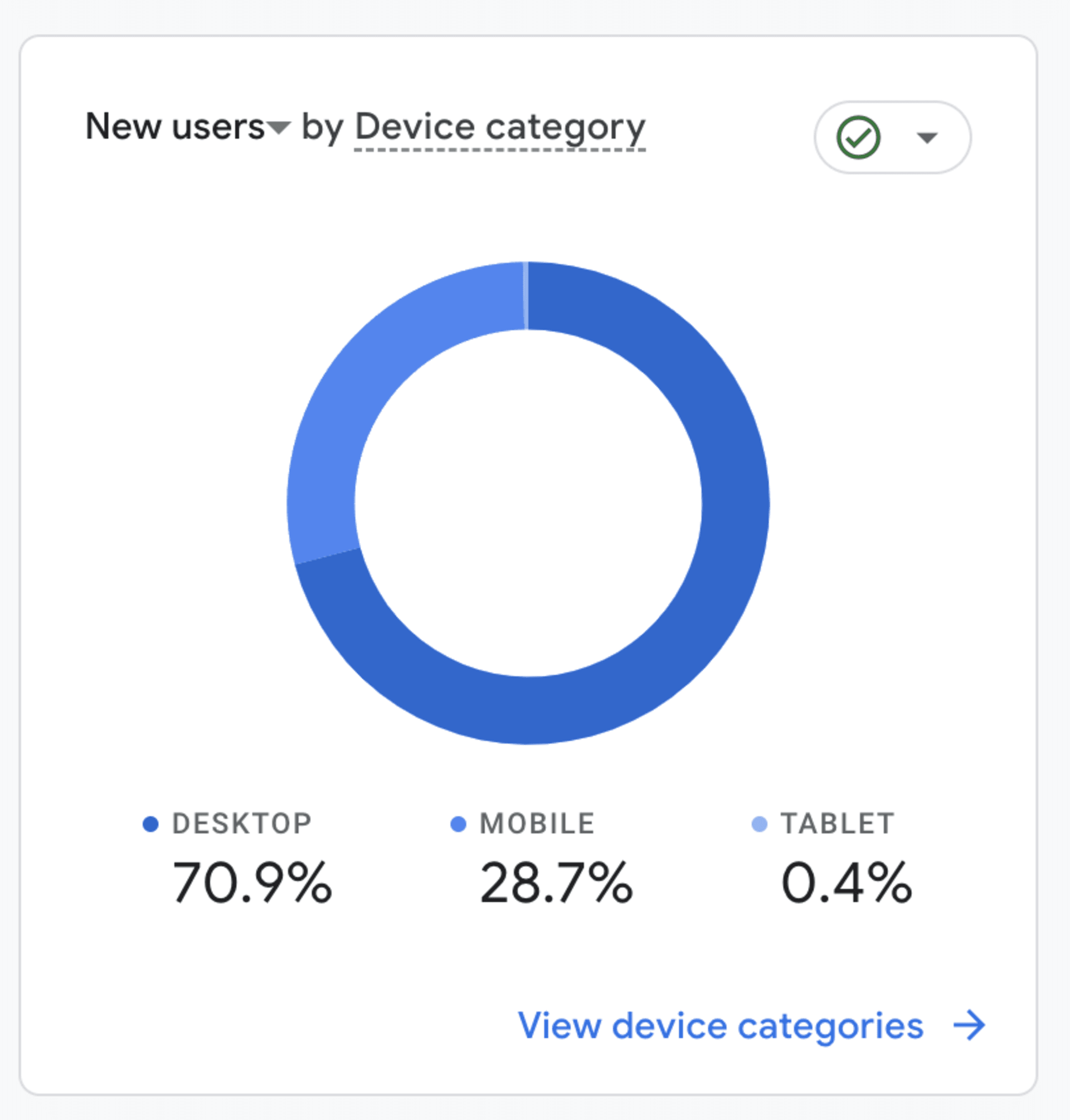
To make sure your website is mobile-friendly, it should be responsive, meaning it adapts to different screen sizes. Navigation should be simple, and content should be easy to read without having to zoom in.
Making Sure Your Site Is Crawlable
For your website to appear in search results, search engines need to be able to crawl and index it. Crawling is when search engines scan your site to find out what it’s about, and indexing is when they store this information for future reference.
To ensure your site is easy to crawl, make sure it has a clear structure, with a logical hierarchy of pages. You should also use an XML sitemap and Robots.txt. An XML sitemap is a file that helps search engines find and index all the pages on your site, whereas Robots.txt is a file that instructs Google crawler bots what parts of the website they can access.
What Local SEO Is & Why It Is Important for Businesses
If you run a local business, like a café, or a shop, local SEO is vital. Local SEO ensures that your business appears in search results when people in your area are looking for services like yours. For example, if someone searches for “best coffee shop near me,” local SEO helps you show up in those results.
Optimising Your Google Business Profile
One of the most important tools for local SEO is Google Business Profile A Google Business Profile is a free listing that helps your business appear in local search results and Google Maps. To get the most out of it, make sure your profile is complete and accurate, with up-to-date contact details, and hours of operation, as well as including high-quality posts and photos.
Encouraging customer reviews can also improve your local rankings. Positive reviews signal to both potential customers and search engines that your business is trustworthy.
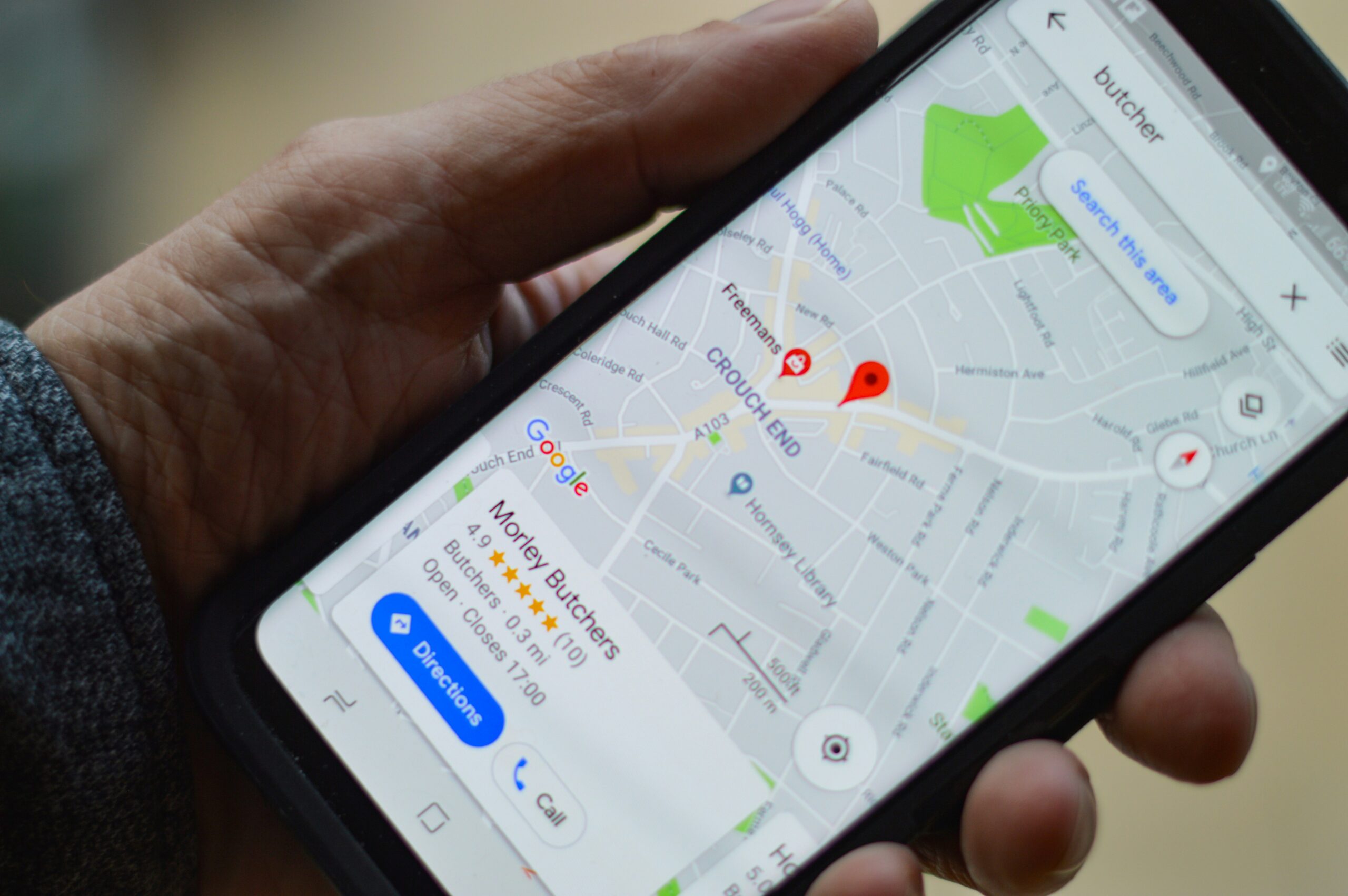
SEO Is Not a One-Time Task
SEO is not something you can set up once and forget about. It’s an ongoing process that requires regular monitoring and adjustments. Search engines are constantly updating their algorithms, so what worked a few months ago might not be as effective today. For example, Google updates search algorithms multiple times per day, with a few Core Updates per year. These Core Updates can significantly impact your site’s rankings and overall SEO performance, so it’s essential to stay up to date with these changes.
That’s why it’s important to regularly check your website’s performance. This can be done through SEO audits, which help identify any issues that could be hurting your rankings. Audits also allow you to spot opportunities for improvement, whether that’s refreshing old content, fixing broken links, or adjusting your keyword strategy.
SEO may seem like a lot to handle, but with the right approach, it can be massively rewarding. By focusing on creating high-quality content, building strong backlinks, and ensuring your site is technically sound, you can improve your rankings and drive more traffic to your website.
SEO Tools You Need to Succeed
To make the most of your SEO efforts, you should ensure you are using the right tools. Some essential tools for SEO include Google Analytics (GA4), which helps track visitor behaviour and understand how users interact with your site. Google Search Console allows you to monitor your site’s search performance and identify any issues that may be affecting your rankings. On top of these, Google Tag Manager simplifies the process of adding and managing tracking codes, which then makes it easier to view the impact of your SEO campaign.
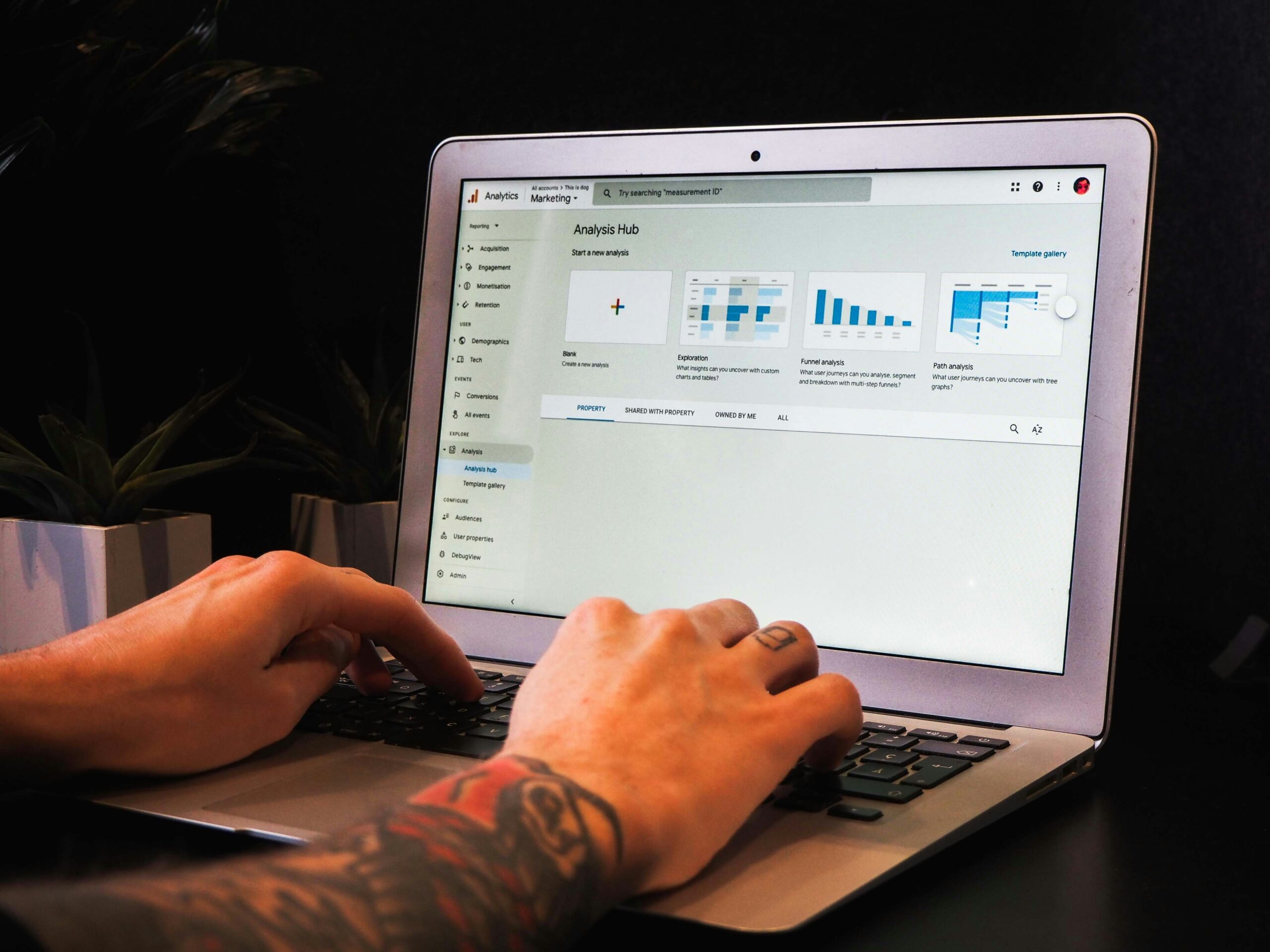
Getting Started with the Right Search-First Marketing Agency
At Diony, we focus on what works. With a mix of on-page, off-page, technical, and local SEO strategies, we’ll help your business grow online.
We believe in a search-first approach that’s tailored to your specific goals. Our strategies are bespoke, and built around your industry, audience, and long-term goals.
We’ve worked with a variety of businesses across the UK, helping them increase their visibility and drive real, measurable results.
If you’re looking for a search-first marketing agency that will help your business stand out, we’d love to chat.
Get in touch with us today to take your SEO to the next level.


